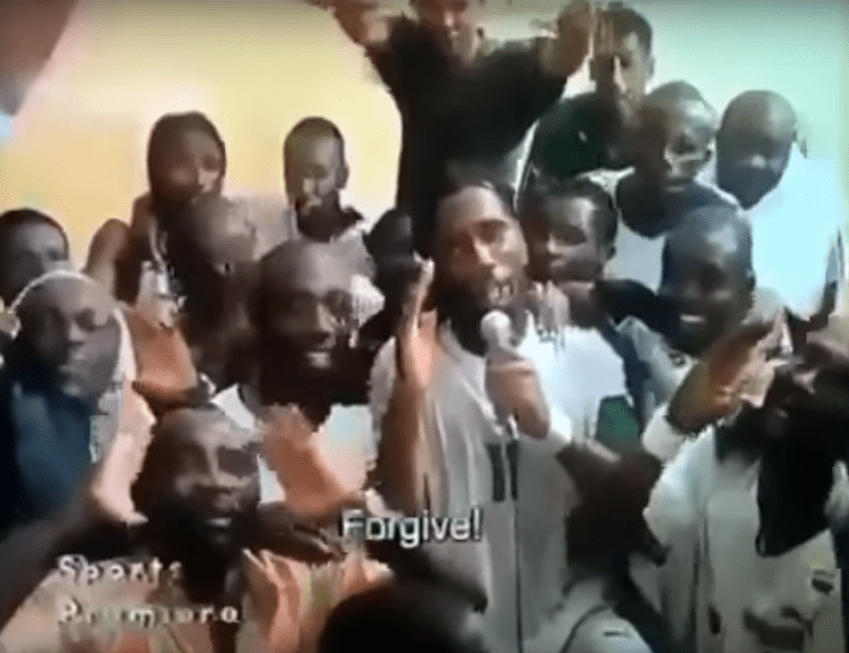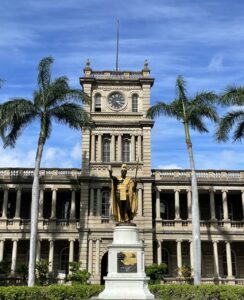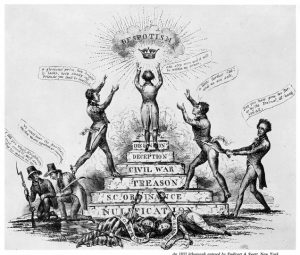The King of Sports, Football (American soccer). Every four years, the world watches the FIFA World Cup. Every four years, people from all parts of the world stop everything they’re doing in order to watch their country play football. Every four years, billions of dollars are invested in this event.1 Many praise it, many criticize it, but what nobody can deny is that football has a power to unite an entire nation and give its people hope and joy, whatever their condition or situation might be. Did you think football was irrelevant and useless? Well, you would be wrong. The power of football is immense, and the story you are about to read will show it. Yes, football, eleven players looking to put a ball in a goal, was able to end a civil war!

Despite moving to France at the age of five, Drogba never forgot his roots nor his people.5 Despite having the possibility of changing his nationality to French citizenship, which would have allowed him to play with a much more competitive team and with greater aspirations to win a World Cup (the ultimate prize of every football lover), love of his homeland was of greater importance to him. When Drogba returned to Côte d’Ivoire, he not only found a football team in ruins and with little hope of achieving any important achievement, but he also found a country in ruins and with hopes of progress almost destroyed.
It all began in September 2002. A group of military opponents of the Ivorian government decided to take the main cities of the country as a symbol of rebellion. The rebels attempted a coup, but it did not work, so they took refuge in the north. That was the beginning of the civil war in Ivory Coast.6

Despite the thousands of deaths during the first three years of the civil war, there was a reason to celebrate in Côte d’Ivoire: football. In 2005, Côte d’Ivoire obtained its first classification to a FIFA World Cup in all its country’s history. It came in a game against Sudan, in which the Ivoirians won 3-1.7 And then, with everyone celebrating that epic result, the captain of the Ivory Coast team, Didier Drogba, wanted to turn that celebration into a momentous moment for the history of the country. Kneeling, and surrounded by all the different races that made up the Ivory Coast Football Team, he turned to the national television camera, and began his message:
“Men and woman of Cote d’Ivoire from the North, South, Centre, and West. We proved today that all Ivoirians can co-exist and play together with a shared aim: to qualify for the World Cup. We promised you that the celebration would unite the people. Today, we beg you, on our knees: Forgive! Forgive! Forgive! The one country in Africa with so many riches must not descend into war. Please lay down your weapons. Hold elections. All will be better. We want to have fun, so stop firing your guns!” 8
Drogba’s message touched Ivoirians, because the country was affectionate at that moment of great celebration, and because they needed someone to open their eyes. After more than four-thousand dead in three years, who better to do so than the greatest idol who, at that time, was already elevated to the level of eternal legend. A week after that gesture, the two sides agreed to a cease-fire; it was the beginning of the end of the war.9

Although “Didi”’s speech was well received by both sides of the confrontation, there were still things to resolve in order to say that “the civil war was over.” Thus, in 2006, when Drogba received the prize for best African footballer of the year, he decided to return to Ivory Coast to show his country the precious trophy. But he did not go to his birth city, the capital of the country: he traveled to Bouaké, one of the cities that had been occupied by the rebels opposed to the government, where they had installed their headquarters. When he arrived, Drogba also gave a speech that again spoke of the importance of unity and peace for the progress and development of the West African country.
After that episode, in 2007, the captain of “The Elephants” (nickname given to the Ivorian soccer team) proposed something that was really daring and dangerous in case it materialized. Drogba’s aim was to realize an official match of the national team in the same city, Bouaké. His goal was to bring the unity of the country to its maximum expression on the most conflicted place, the capital of the rebels. It was not easy, but with the mediation of Drogba, the political and football authorities agreed. It was clear that it was not going to be a normal football game. That date, June 3rd of 2007, was The Day for Ivoirians. There was strong tension in the air, because both the people of Bouaké and those of the capital were present in the stadium. The pressure increased a lot more when the leaders of the Ivorian government arrived, who were with the rebels for the first time without bullets separating them. Miraculously, the king of the sport was able to bring rebel leaders, government leaders, and soccer fans together in one place. Then, the national anthem started, and the Ivoirian president Laurent Gbagbo and the rebel leader, Guillaume Soro, sang it side by side. Drogba knew at that moment that the Civil War was over. “To see the two sides together, to sing in unison the hymn of my country was very special. I felt Côte d’Ivoire was born again,” declared the great striker. Not surprisingly, the following day, after Ivory Coast’s 5-0 win against Madagascar, a local newspaper called “Five goals to erase five years of war.”10
Drogba ended up winning all the hearts of the Ivorian people, when in 2009 he decided to donate a hospital in Abidjan, the capital of his country. He did it with the three million pounds he had received after carrying out an advertising campaign with a well-known brand of soft drinks. He just established one condition: that the hospital services were totally free.11
In 2010, the well-known TIME magazine included Drogba among the 100 most influential people in the world, because of his peace objectives and results in the Ivorian Civil War.12From there, he became a United Nations Goodwill Ambassador. In addition, Drogba has a foundation, which built five hospitals in Côte d’Ivoire. The hospitals in Abidjan, Yamoussoukro, Man, Korhogo, and San Pedro, which cost five million dollars, were paid for with Drogba’s own money.13 In football, you can be an idol based on goals and titles. But Drogba is much more than an idol. He is a hero, almost a saint, in Ivory Coast.

Like him, there are thousands of artists and athletes who enjoy popularity and unanimous approval in their countries. The great majority of these artists are blinded by fame and lust. They squander all their money and end up consuming drugs or are stuck in scandals of sexual abuse, tax evasion, or alcoholism.14 This was not the case for Didier Drogba. The Ivoirian used all his influence to build a better future for the next generations of Ivoirians. A World Cup qualification is an invaluable gift for a football lover, but something that even surpasses this is what “Didi” did: give his compatriots peace. Let us hope that the case of Drogba will not be the only one, and that these influential people can use their popularity for the good of others, for peace.
- Veysel Avsar and Unal Umut, “Trading Effects of the FIFA World Cup,” Business Source Complete, no. 3 (May 2014): 315-329. ↵
- Encyclopædia Britannica, September 2014, s.v. “Drogba, Didier,” by Jack Rollin. ↵
- Ishaan Tharoor, “These global sporting events totally dwarf the Super Bowl,” The Washington Post, February 05, 2016. ↵
- Grant Wahl, “In Praise of Drogba,” Sports Illustrated 116, no. 22, (May 28, 2012): 53. ↵
- Encyclopædia Britannica, September 2014, s.v. “Drogba, Didier,” by Jack Rollin. ↵
- Abu Bakarr, “Democracy and Civil War: Citizenship and Peacemaking in Cote d’Ivoire,” African Affairs no.1 (February 2010): 513. ↵
- Peter Law, “The World at their feet: five African representatives will be among 32 finalists vying for honors,” New African, no. 452 (June 2006): 59. ↵
- Paddy Agnew, “Drogba calls for peace as football unites Ivory Coast,” Irish Times (February 07, 2006): 12. ↵
- Grant Wahl, “Soccer Savior,” Sports Illustrated 112, no. 22 (May 2010): 52. ↵
- Alex Hayes, “How Drogba united the Ivory Coast Chelsea star acclaimed by his countrymen after ending five-year civil war,” Daily Telegraph (August 8, 2007): 22-23. ↵
- Laura Williamson, “It’s Saint Drogba!,” Daily Mail (November 12, 2009): 96. ↵
- Richard Stengel, “The 2010 TIME 100,” Time Magazine (April 2010). ↵
- John Hutchinson, “The Didier Drogba Foundation,” The Sun (February 17, 2012): 24. ↵
- Lawrence Wenner, Fallen sports heroes, media, and celebrity culture (New York: P. Lang, 2013): 201. ↵



71 comments
Miranda Alamilla
Growing up largely influenced by soccer, I knew from the beginning that Drogba was a phenomenal Soccer player. My family being Mexican, Soccer has always been a bigger part of my life than any other sport. However, I didn’t know how often and how much Drogba used his power for good. Not only did Drogba end a civil war within his home country, he was able to build 5 hospitals for them alongside providing free health care. Drogba is huge inspiration and we should all take the time to learn from his humbleness and selflessness.
Thomas Fraire
I really enjoyed this article! I had no knowledge of the soccer player Drogba or just knowledge on soccer in general. It is really cool how in spite of this mans fame he still took the time to help those in need. It is truly inspirational and heartwarming to see. Usually, in our world, today athletes live this lavish selfish life and it is cool to see someone give back.
Didier Cadena
It was great to read about how one man was able to unite a divided country through their love of soccer. I had heard about this story before, but I did not know about how much planning went into Didier’s plan to unite his country. It was also great to hear about his efforts to build hospitals that would provide services for free. This article fully shows how much of a great role model Didier Drogba is.
Josemaria Soriano
November 15th, 2017. My national team, the soccer team of Peru was able to qualify to the World Cup after 36 years of failures. It was amazing. In ALL my life I have NEVER see so much happiness, so much unity, so much proud of being peruvian. The joy was so big that the president declared a national holiday the next day. Soccer is amazing, even a religion in my country. I wrote this article in order to express this admiration I feel for this sport, for the power that a ball can have in a country, such as the power Didier Drogba had in order to free his country of a bloody war. I am very happy that there is more people that is feeling this passion I feel for soccer!
Eduardo Foster
I have been a huge soccer fan but did not have idea how Didier Drogba ended a civil war in his hometown country! It is actually pretty motivational on how Drogba help his country to overcome a war. It is amazing how famous people can use their fame in a positive way to help other people. Great article and keep it up with the good work!
Lisa Varela
I personally am not a soccer fan, however, I have never doubted the power it has to unite a nation. The Ivoirian people proved just that. I found it incredible that leaders from both side came together for a soccer game, no guns or form of violence included. How incredible is it that the Ivoirian president and the rebel leader sang the countries anthem side by side.
Cherice Leach
It’s relieving to read of some good being done with something as simple but as universal as a fun sport like soccer. When you put your passion and heart into something you care about, no matter what it is, I believe that you can do good if you work for it. And Didier certainly did work for it. The level of skill and fame he achieved is no joke, and to use that to be able to donate a hospital is nothing short of amazing.
Lauryn Hyde
Great article! I have never been a soccer fan so I had never heard of Didier Drogba before. I have always admired sports player who are fantastic players at their sport however they are still humble and down to earth. I find it very uplifting that Didier Drogba used his fame and talent to bring change to the world and do good. Since our society puts such a high importance on sports, we need more players like Didier Drogba to use their influence to bring various social changes.
Michael Mandujano
The author produced a well-written article on behalf of Soccer star Didier Drogba. After reading this article I have gained greater insight on Drogba’s personal life and how his talents on the field potentially ended the Cote D’Ivoire civil war. In fact, it is quite inspirational how a Soccer player’s words were moving to end economic tensions. Overall, this was a well written article and the images, exhibited throughout the article were interesting.
Samman Tyata
Great article! I am a huge fan of Soccer and I really loved reading your work. Your article did a great job in explaining the life of Drogba. He is a true inspiration. It was really heart- touching to read that he donated three million pounds he had received from an advertising campaign and helped people to get free health services. To sum it up, it was a good read.